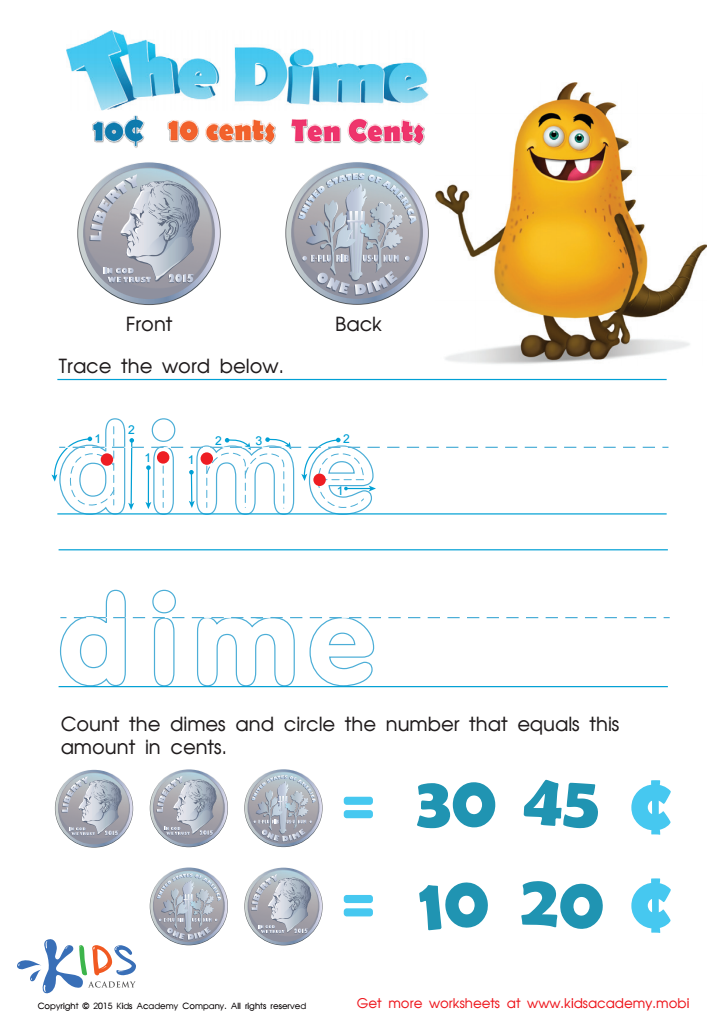Normal Money Worksheets for Ages 3-4
1 filtered results
-
From - To
Introducing our engaging Normal Money Worksheets, expertly crafted for Ages 3-4! These interactive worksheets are designed to introduce young learners to the basic concepts of money in a fun and accessible way. Through a series of carefully structured activities, children will explore and learn about coins and notes, helping them to recognize and understand the value of money in everyday situations. Perfect for early childhood education, our Normal Money Worksheets for Ages 3-4 make learning about money an enjoyable and educational experience, setting a solid foundation for future financial literacy. Spark your child's curiosity and confidence in dealing with money right from the start!


Ten Cents or the Dime Money Worksheet
Introducing normal money worksheets for ages 3-4 marks the beginning of a foundational journey into financial literacy for young learners. At this critical early stage of development, children are incredibly receptive to new concepts, making it the perfect time to introduce the basics of money management and recognition. These worksheets are specifically designed to cater to the developmental needs and learning capabilities of preschoolers, ensuring that the concepts of money are presented in a fun, engaging, and age-appropriate manner.
By incorporating normal money worksheets into their learning routine, children ages 3-4 start to recognize different coins and bills, understand their values, and gradually develop the cognitive skills necessary for simple financial transactions. These activities are not just about numbers and math; they also enhance other essential skills such as problem-solving, critical thinking, and even fine motor skills through the handling of money.
Moreover, familiarizing young children with the concept of money lays the groundwork for future lessons in saving, spending, and the value of hard work. It encourages early discussions between parents and children about money management, setting the stage for responsible financial behaviors in the future. In a world where financial literacy is key to personal success, normal money worksheets for ages 3-4 are an invaluable tool in starting young learners on the path to becoming savvy and responsible with money.

 Assign to the classroom
Assign to the classroom












